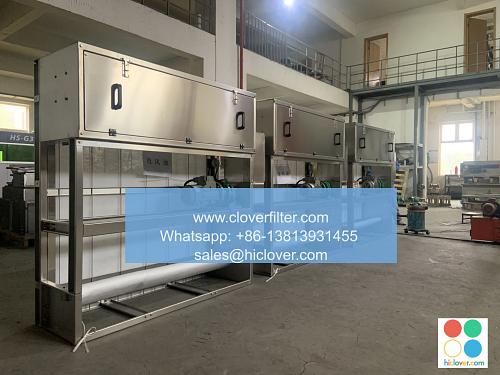The Link Between Air Filters and Allergies

Air filters play a crucial role in maintaining good indoor air quality, which is essential for people suffering from allergies. Allergies are a common health issue affecting millions of people worldwide, and poor air quality can exacerbate symptoms. In this article, we will explore the link between air filters and allergies, highlighting the importance of heating, ventilation, and air conditioning (HVAC) systems, air purification systems, and high-efficiency particulate air (HEPA) filters in reducing allergy symptoms.
##
Understanding Allergies and Indoor Air Quality
Allergies occur when the body’s immune system overreacts to harmless substances such as pollen, dust, mold, and pet dander. These allergens can become airborne and be inhaled, triggering allergic reactions. Indoor air quality is a significant concern, as people spend most of their time indoors, where allergen levels can be higher than outdoors. Air quality monitoring and indoor air quality control are essential to minimize exposure to allergens.
##
The Role of Air Filters in Allergy Relief
Air filters are designed to remove airborne particles, including allergens, from the air. By using high-quality air filters, such as those with HEPA technology, you can significantly reduce the amount of allergens in the air. This can lead to alleviated allergy symptoms, including congestion, sneezing, and itchy eyes. Air filter replacement and regular maintenance are crucial to ensure the effectiveness of air filters in removing allergens.
##
Application Areas for Air Filters
Air filters have various applications in different settings, including:
* Residential air filtration systems: Whole-house air filtration systems can be installed in homes to remove allergens and improve indoor air quality.
* Commercial air purification systems: Offices, schools, and hospitals can benefit from air purification systems to reduce allergen levels and create a healthier environment.
* Portable air purifiers: Portable air purifiers can be used in individual rooms or spaces to remove allergens and improve air quality.
* Vehicle air filtration systems: Air filters can be installed in cars to remove allergens and pollutants from the air while driving.
##
Key Features to Consider When Choosing Air Filters
When selecting air filters for allergy relief, consider the following key features:
* Filter efficiency: Look for air filters with high efficiency ratings, such as MERV 11 or higher, to ensure effective allergen removal.
* Filter type: HEPA filters are highly effective in removing allergens, but other types, such as activated carbon filters, can also be beneficial.
* Air filter maintenance: Choose air filters with easy-to-replace filters or washable filters to minimize maintenance costs.
##
Conclusion
The link between air filters and allergies is clear: using high-quality air filters can significantly improve indoor air quality and alleviate allergy symptoms. By understanding the importance of air quality control and allergen removal, individuals can take steps to create a healthier environment. Whether you’re looking for residential air filtration systems, commercial air purification systems, or portable air purifiers, there are various options available to suit your needs. Remember to consider key features such as filter efficiency, filter type, and air filter maintenance when choosing air filters for allergy relief. It looks like you didn’t provide a prompt. Could you please give me a topic, question, or prompt to work with? I’ll do my best to help!

